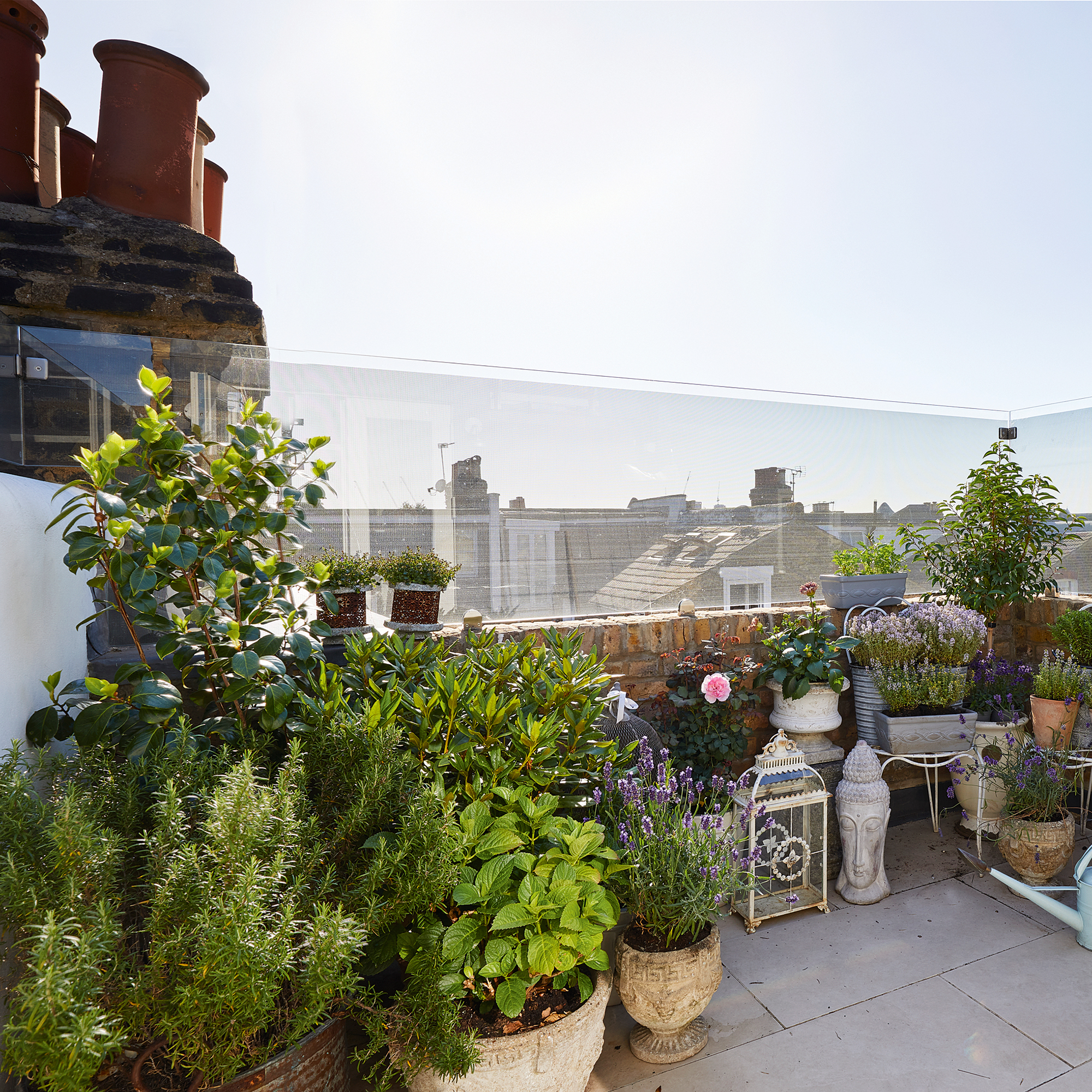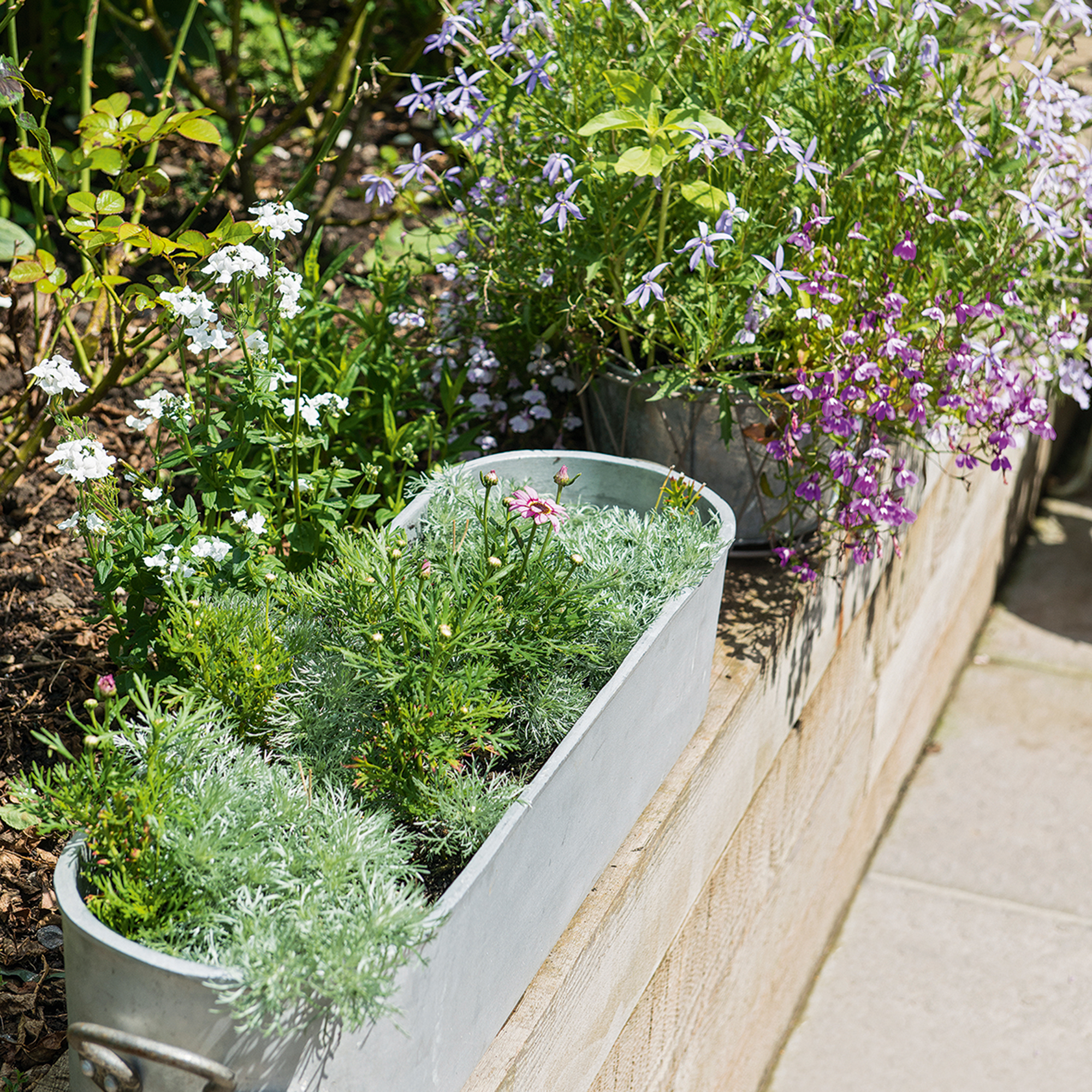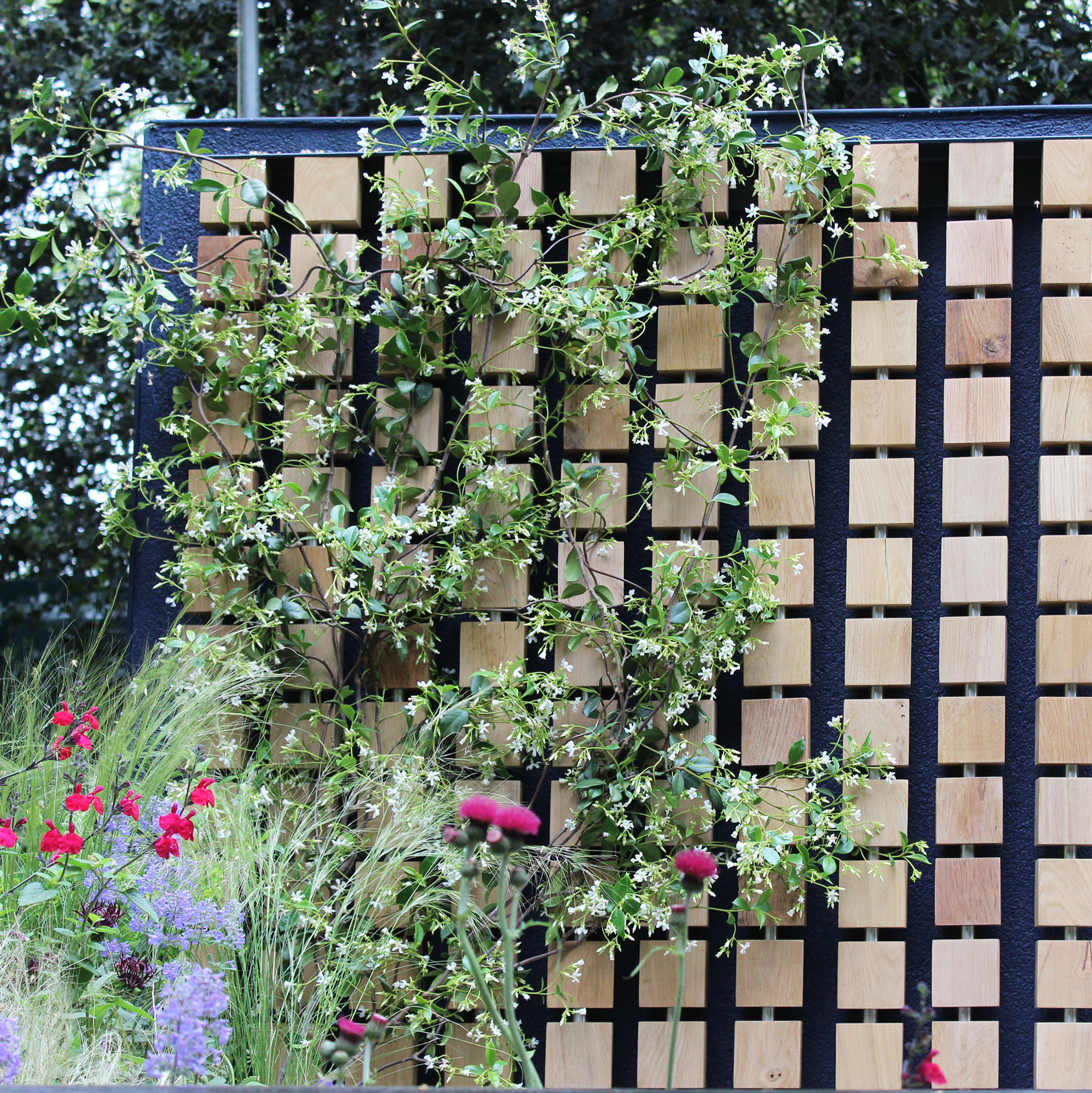
Many people assume that you can’t grow anything on a balcony, but that’s not true at all. You can grow everything from flowers to herbs and even edible produce on a balcony as long as you avoid these balcony garden mistakes.
Yes, you’ll be happy to know that you can still bring your small garden ideas if you don’t have a traditional garden. As long as you have some kind of outdoor space - like a balcony, for example - you can transform it into an outdoor oasis, complete with the best garden furniture and a container garden that’ll make any green-fingered gardener jealous.
But you can’t just add plants to a balcony willy-nilly. If you want to make the most of your small space, you should heed the warnings of these garden experts and avoid these balcony garden mistakes.
Balcony garden mistakes
‘Adding plants and planters to your balcony is a great way to breathe some life into your outdoor space, no matter how small it is,’ explains Steve Chilton, garden expert at LeisureBench. ‘However, there are some mistakes that are often made which have a negative impact on the appearance of your balcony garden, as well as the plants' health.’ These are just a few of them.
1. Choosing the wrong plants

When creating a balcony garden, you have the option to go wild with your plant choices. You can choose the most colourful plants available, grow tomatoes or potatoes, or plant a herb garden that will take your cooking up a notch.
But choosing the wrong plants for your balcony is one of the biggest balcony garden mistakes you can make - and that’s not because of the plants, but rather the balcony itself.
Steve explains, ‘If your balcony is in the shade for the majority of the day, then there's no point in buying a sun-loving plant as it simply won't grow effectively. It's the same the other way round. If your balcony is south-facing and gets a lot of sun throughout the day, then you really need to only pick plants that are suitable for growing in full sun.'
‘If you don't adhere to the plants' growing conditions, then you'll face problems with your plants down the line, including everything from lack of germination, wilting leaves, lack of flowering, and yellowing leaves.'
Of course, you should also consider how big these plants are going to grow. ‘If your balcony garden is a small space, then don't plant plants that are going to grow too big for the balcony,’ says Steve.
‘Not only will they outgrow their space quickly, but the chances are that they won't be able to grow healthily at all, due to the fact that they won't have enough space for their roots, and will likely be in too small of a pot.’
2. Not using the space to your advantage

If you’re planning a balcony garden, you might be planning to pop a load of pots on the floor. But what most people fail to realise is that a balcony is so much more than just the floor.
Yes, you need to use all of your balcony space to your advantage, and this includes the railings and the walls. In fact, vertical gardening will be your friend when planning your balcony garden.
By installing wall-mounted plant pots and pots that can hook onto the railings, you can add more to your balcony garden without taking up the all-important floor space. If you wanted to, you could even get on board with the hanging basket grow-your-own trend.
3. Choosing the wrong pots

When creating a balcony garden, you might buy your plants and your pots separately. And while there’s nothing wrong with that, you need to make sure that you’re buying the right kind of pots. To do this, you can ask yourself a few questions.
Are they too heavy? Are they big enough for the plants? Do they have drainage holes? In fact, the latter is hugely important, as one of the biggest balcony garden mistakes you can make is choosing pots without proper drainage.
As balcony gardens don’t have the advantage of garden borders or raised garden beds (i.e. the ability to plant straight into the ground), the plants rely on drainage holes in pots to prevent overwatering. If they don’t have drainage holes, the water will go stagnant and potentially kill the plants in the process.
This is echoed by Steve who says, ‘When you're growing any plants in pots, it's vital that you ensure good drainage so that your plants don't get waterlogged. I recommend opting for well-draining soil, as well as pots with holes (or at least a pot with holes inside your ornamental pot). This will prevent waterlogging and will be much more healthier for your plant.’
4. Adding too many plants

When you only have a small outside space but big garden ideas, we understand that it can be hard to reign in your plant plans. But if you want to avoid this balcony garden mistake, you should also avoid adding too many plants to your balcony - and to your pots.
If you add too many plants to your balcony garden, you may find that your balcony looks overcrowded and the health of your plants suffer as a result. After all, if you’ve covered the floor in plant pots, how are you supposed to tend to the plants at the back?
Of course, that doesn’t mean that you can’t put plants on the floor at all. You just need to be careful when it comes to your arrangement. ‘Don’t use too many pots of the same size,’ says Steve. ‘This can make a balcony garden look crowded, but different-sized pots tend to help create a more dynamic feel, which in turn helps prevent it from looking crowded and small.’
Be careful you don’t add too many plants into one pot, either. While flower arrangements are a great way to add different flowers and colours into one pot, you need to make sure you don’t overdo it.
‘Trying to cram as many plants as possible into one pot isn't worth it,’ explains Steve. ‘And even if it means you have to grow less plants on your balcony, it definitely means that your plants will be healthier and happier.'
‘Your plants should have enough room in their pots to establish and grow healthy root systems, as well as be able to take in enough nutrients from the soil. The more plants in one pot, the less nutrients there are for each plant, as this has to be shared. When you plant anything, always make sure you check if it should be planted in its pot by itself or not before you do so.’
You also need to ensure that you have the space on your balcony to give each plant pot the care and attention it needs in terms of watering, pruning, and protection from the elements.
5. Not giving them enough TLC

When plants are planted into the ground, they are constantly supplied with nutrients from the soil. And while the compost you put in the pots for your balcony garden still provides your plants with what they need to grow, you still need to give them some TLC.
Because of this, most experts would suggest fertilising your potted plants whenever you can. This couldn’t be easier on a balcony, as you can make your own compost using food scraps leftover from your dinner. Also, a good way to get rid of weeds is to add eggshells or teabags to your soil.
You should also make sure you’re on top of a cleaning schedule if you want to avoid this balcony garden mistake. If you have neighbours above you, your balcony may be sheltered from the elements - which means your plants will be relying on you for water.
If you feel like this is too much of a commitment, you could consider using something like this EWENYS 4 Pack Plant Self Watering Bulbs.
FAQs
What are the disadvantages of balcony gardening?
The biggest disadvantage of balcony gardening is the lack of growing space. This means that you have to focus on growing plants in pots and containers, and plants always require more care and attention when grown in this way.
Another disadvantage is that the weather is unpredictable. While balconies may be sheltered, their height also means that they are battered by winds and sometimes exposed to warmer temperatures and magnified sunlight. Because of this, you need to make sure that you buy the right plants for your specific balcony.
How do you manage a balcony garden?
Managing a balcony garden is a daily task. For starters, you need to make sure that the plants are all receiving enough water and coping with the weather conditions.
On a particularly windy day, you may need to add a windbreak to your balcony, or you may need to move your plants around to protect them on a particularly sunny day.
It’s also a good idea to check on the growth of your plants and repot when necessary.
Now you know the balcony garden mistakes to avoid, you can focus on making your balcony garden a success.







